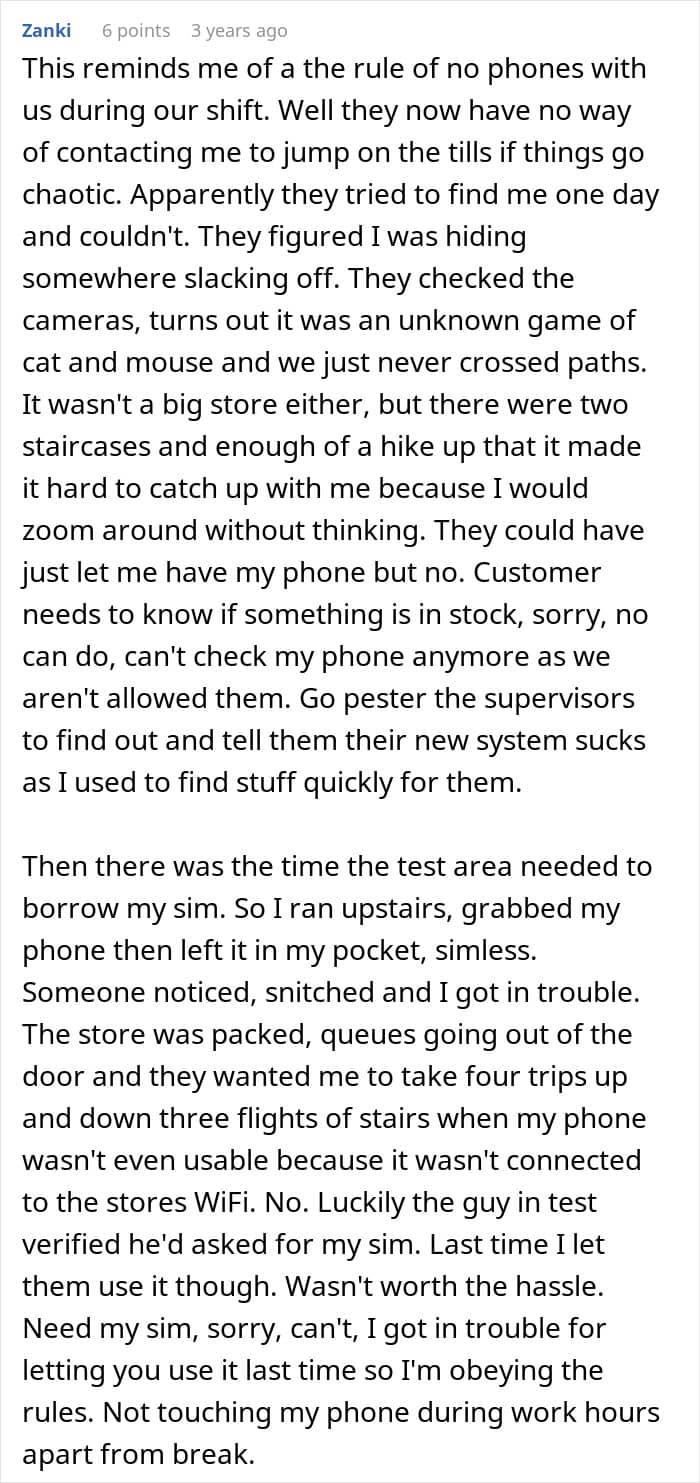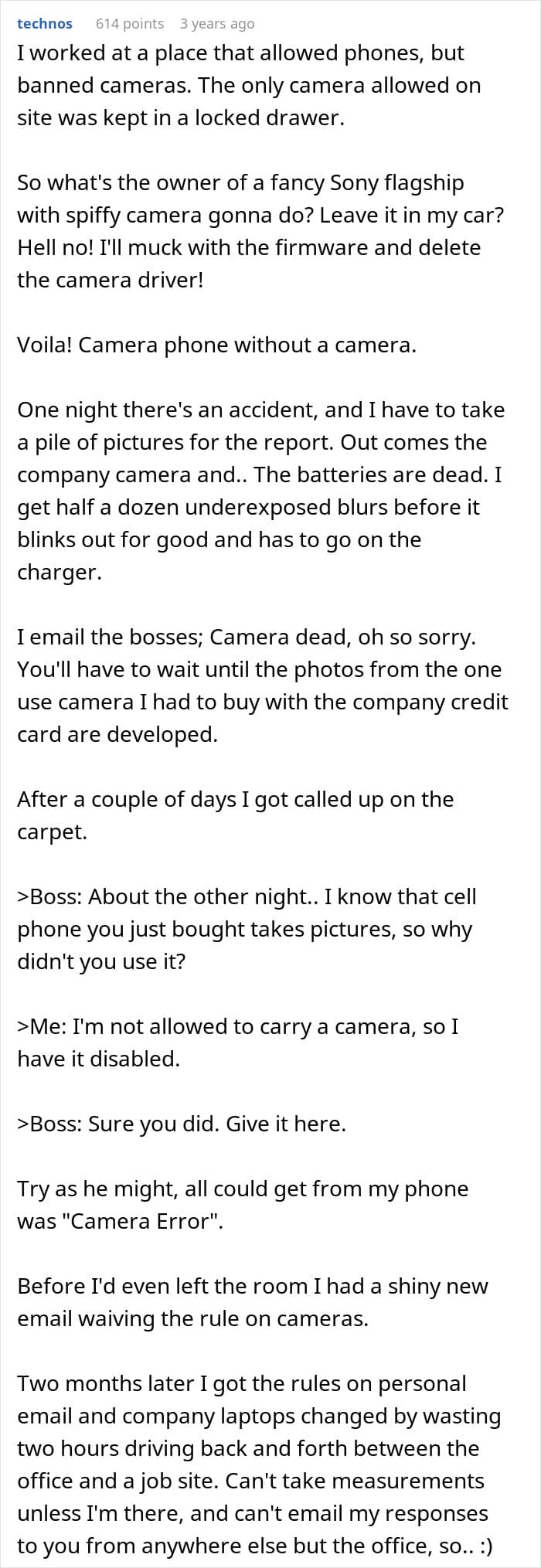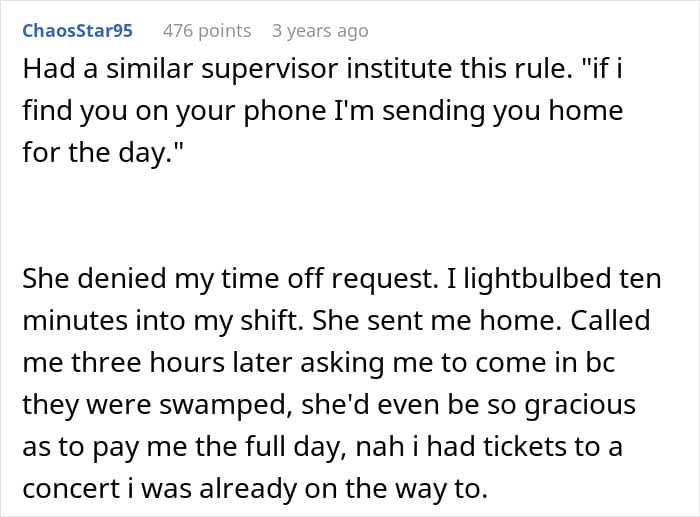Would you break a rule if you knew doing so would help solve a problem for your boss? One guy might have… had his boss chosen to be a bit kinder to him and his colleagues. The employee has shared how they always had to adhere to a strict “no mobile phones at work” policy. No ifs or buts. And how that very policy came back to bite the bosses on one of the busiest work days of the year.
The employee says the landlines went down on that day, and he was left with no choice but to wait it out. He wasn’t allowed to use his personal phone, so he couldn’t alert management to the hours-long crisis. His act of malicious compliance didn’t stop there, though. And the guy’s story has many netizens giving a slow clap.
RELATED:Sometimes, rules and regulations do more harm than good

Image credits: dmytro_sidelnikov / freepik (not the actual photo)
One boss learned this the hard way when he paid a hefty price for a strict no-phones policy
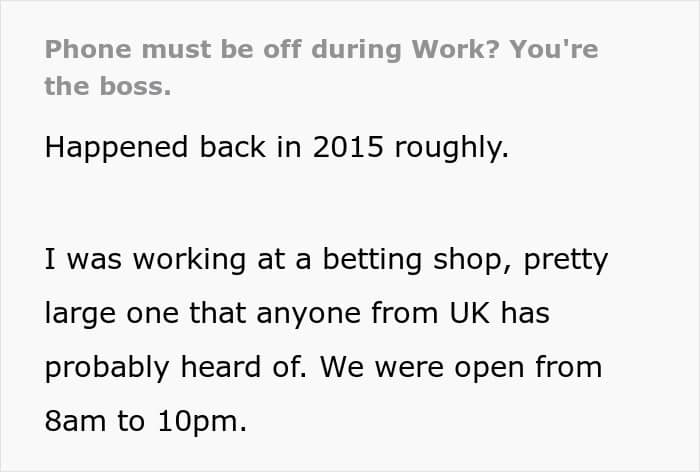



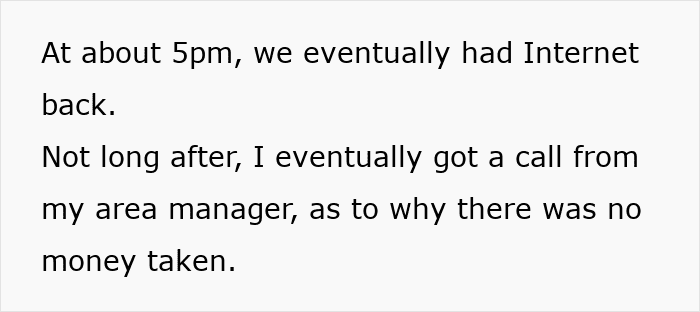
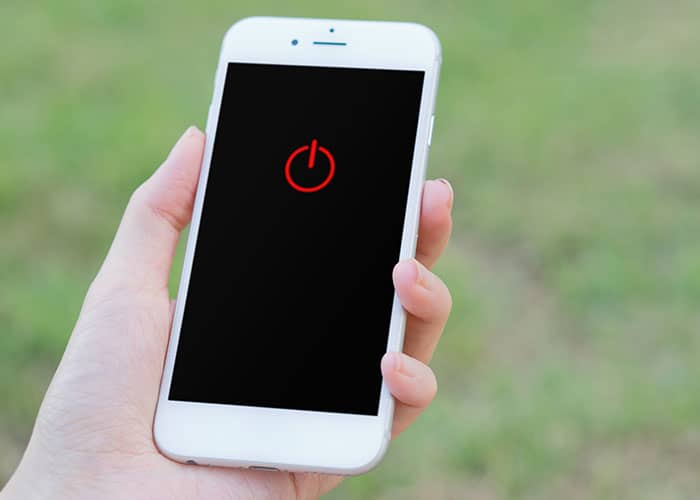
Image credits: EyeEm / freepik (not the actual photo)
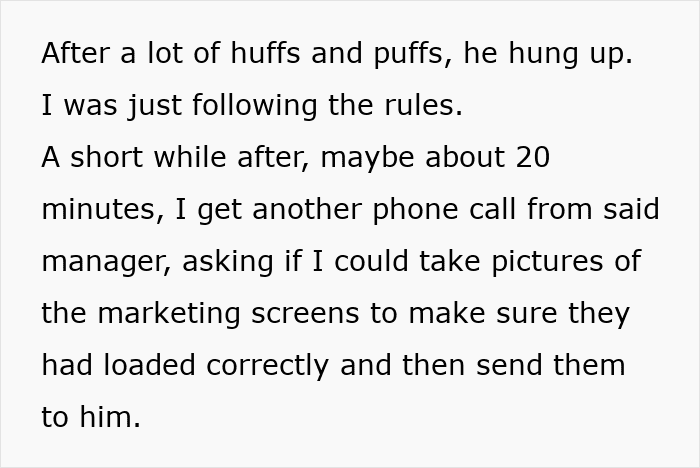

Image credits: Super-Monkfish
Can your company restrict or stop you from using your mobile phone at work? Legal experts weigh in

Image credits: user18526052 / freepik (not the actual photo)
Under UK law, there’s no specific rule that says your employer can or can’t stop you from using your mobile phone at work for personal reasons, whether on-site or remotely. That’s according to UK legal firm Monaco Solicitors. The experts add that the general principles of employment law apply. So it’s best to check your work contract and company policies carefully.
“Your employer has the right to include rules about mobile phone use for personal reasons in your contract of employment and/or by way of a company policy on mobile phone use,” warn the legal experts. “If you’ve agreed to these terms when you started the job, then you’re generally bound by them. If your employer suddenly introduces a new rule about mobile phones, they should consult with you first or notify you of the change.”
Monaco Solicitors notes that a company’s workplace mobile phone policy may require you to limit the use of your phone during working hours. “For example, limit use to breaks, lunchtimes, or emergencies so as to minimize disruptions,” reads the site.
It could also stipulate that you only use your device in designated areas, like outside office spaces, in order to avoid disturbing colleagues, as well as to maintain a professional environment.
Bosses might request that you keep your phone on silent or vibrate mode. This limits loud distractions in the office during meetings, presentations, or collaborative work. The policy could state that you should respect workspaces. For example, don’t use your personal phone in shared workspaces unless absolutely necessary.
“Under the Working Time Regulations 1998, you’re entitled to at least a 20-minute rest break if you work more than six hours a day,” adds Monaco Solicitors. “During this time, your employer shouldn’t try to restrict you from using your mobile phone unless there’s a good reason (for example, you’re working in a secure environment where phones aren’t allowed).”
The lawyers warn that if you break workplace rules, your employer can take disciplinary action against you. The consequences depend on how serious they consider the breach to be, they add.
“Use of your mobile phone in a genuine emergency would be forgivable and a quick glance at your phone might result in an informal reminder about your organisation’s mobile phone policy,” notes the site. “However, if you constantly text or interact with social media, that kind of use could lead to formal disciplinary action, especially if it adversely affected your work.”
The solicitors say employers must follow a fair process in any disciplinary action. “This means they can’t just fire you on the spot for using your mobile phone – unless of course you’ve done something extreme, like leaking confidential information!”
Why do some companies have no-phones policies?
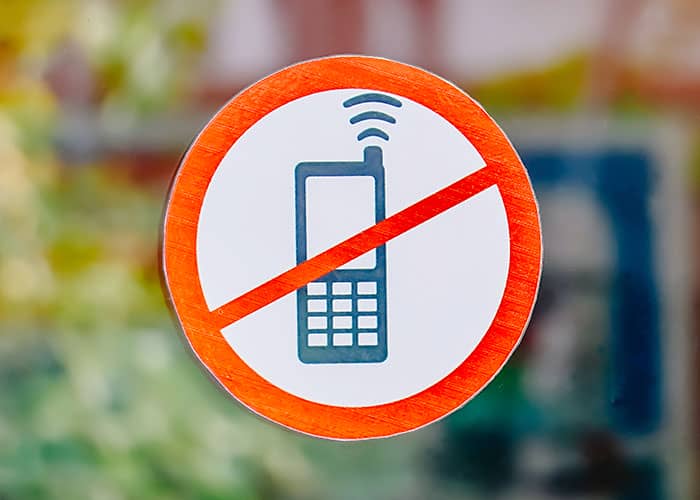
Image credits: EyeEm / freepik (not the actual photo)
There are many reasons why a company might implement a no-phones policy at work. It might have to do with productivity. You’re being paid to work, not scroll through social media or have fat chats with family and friends. If you’re constantly on your phone, you could be distracted and your work will pay the price.
Depending on your industry, management may also put a ban on phones as a safety measure. Being distracted by your phone while working in a factory, butchery, construction site, operating theater, or while using certain machinery could put you or others in danger.
The no-phones policy might even be due to confidentiality. Management could be concerned that those working with sensitive information can put the company at risk of data breaches or accidental leaks while using their personal devices.
Then there’s the customer service issue. When you’re dealing with customers or clients, you are expected to look and act professional. Not stand around on a call discussing your weekend plans, or laughing at the latest viral TikTok video.
The guy clarified some issues in the comments section

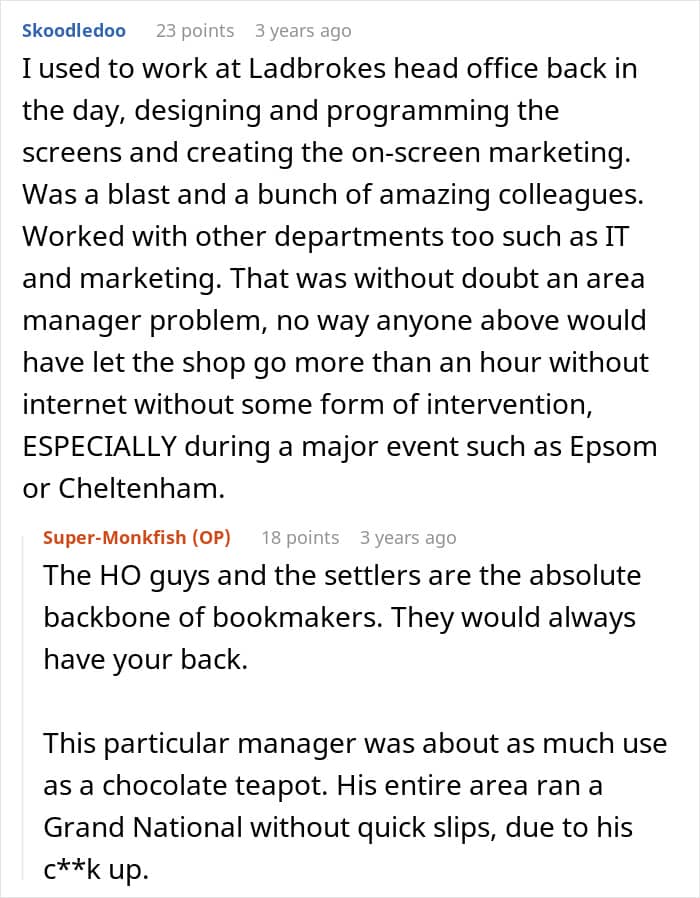

“Well played”: netizens praised the employee for the way he handled the situation
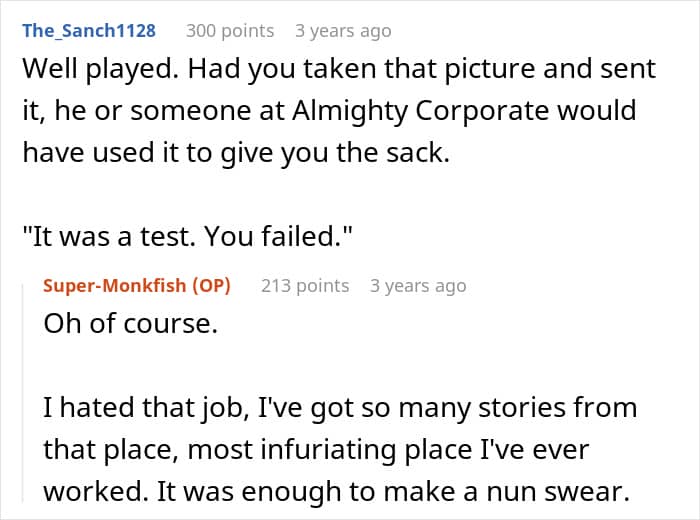
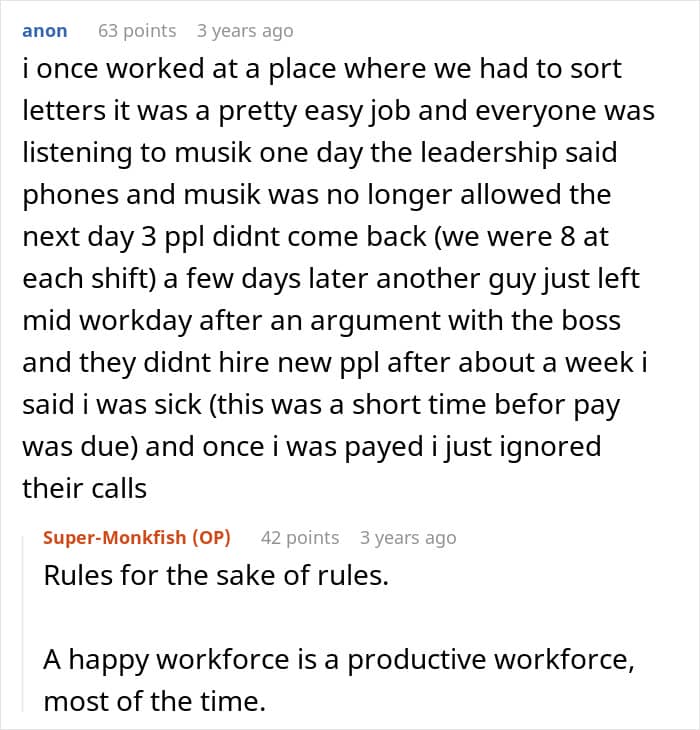



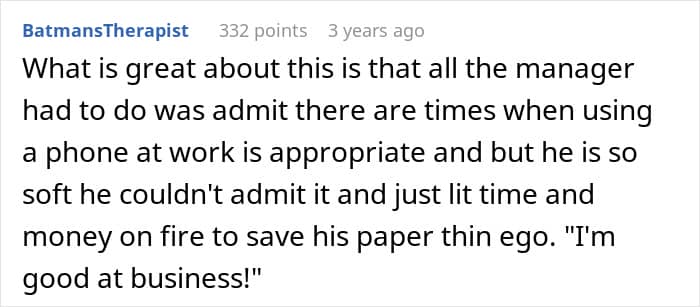

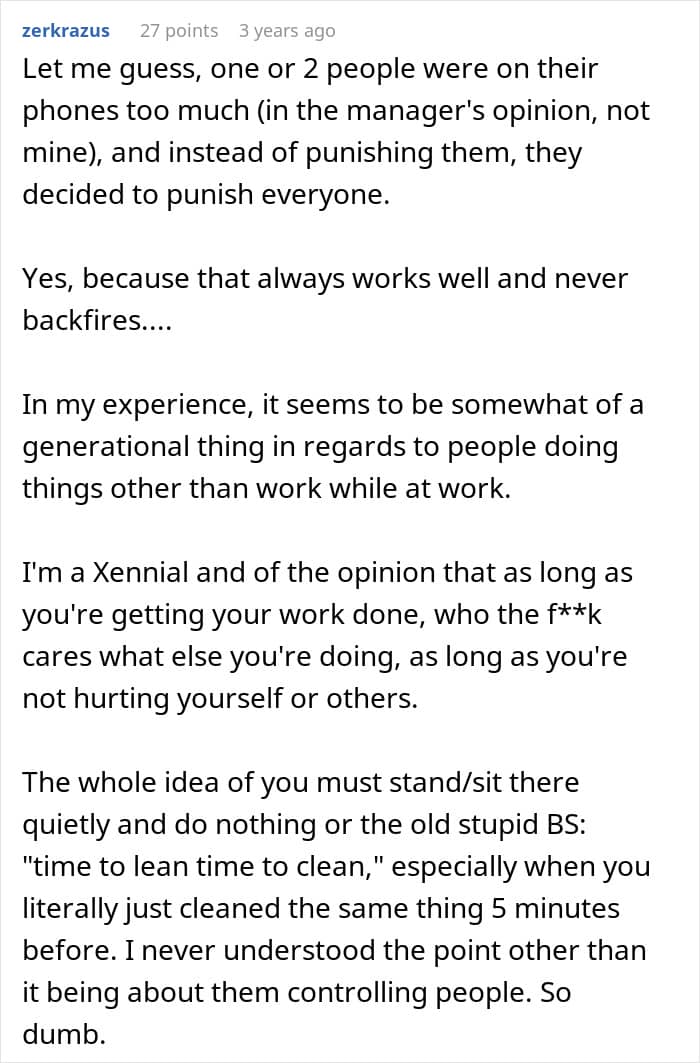



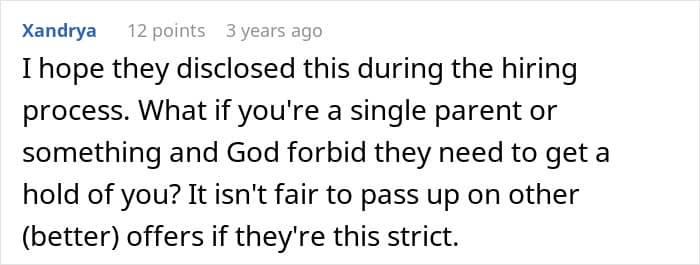





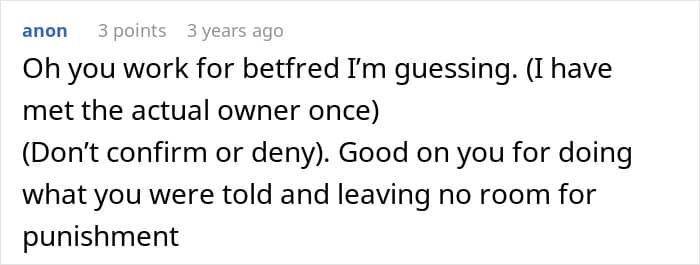
People shared their own similar stories
